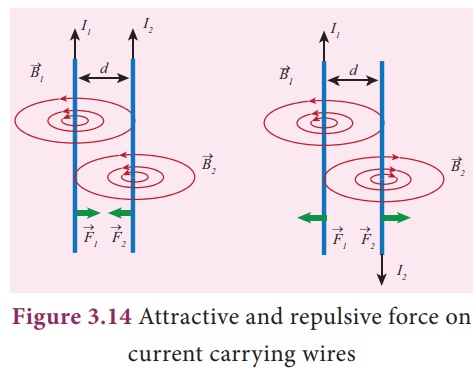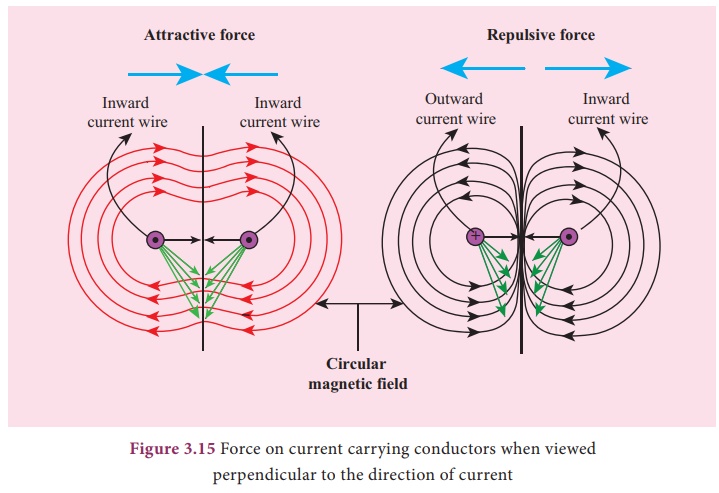Chapter: 9th Science : Magnetism and Electromagnetism
Force on parallel current carrying conductors
Force on parallel current carrying conductors
We have seen that a
current carrying conductor has a magnetic field around it. If we place another
conductor carrying current parallel to the first one, the second conductor will
experience a force due to the magnetic field of the first conductor. Similarly,
the first conductor will experience a force due to the magnetic field of the
second conductor. These two forces will be equal in magnitude and opposite in
direction. This is shown in Fig. 3.14.

Using Fleming’s le hand
rule we can nd that the direction of the force on each wire would be towards
each other when the current in both of them are owing in the same direction. at
is the wires would experience an attractive force. However, if the direction of
the flow of current is in opposite direction, then the force on each of the
wire will also be in opposite direction. ese are shown in Figure 3.14. The perpendicular
view of the same is shown in Figure 3.15.

Connection between Electricity and magnetism:
Before 18th century people thought that magnetism and electricity were separate subjects of study. A er Oersted experiment the electricity and magnetism were united and became a single subject called “Electromagnetism”.
When there is current,
the magnetic field is produced and the current carrying conductor behaves like
a magnet. You may now wonder how was it possible for a lodestone to behave like
a magnet when there was no current passing through it. In the twentieth century
only we understood that the magnetic property arises due to the motion of
electrons in the lodestone. In the circuit the electrons flow from negative of
the battery to positive of the battery and constitutes current. As a result it
produces magnetic field. In natural magnets and artificial magnets we buy in
shops, the electrons move around the nucleus constitutes current which leads to
magnetic property. Here, every orbiting electron in its orbit is like a current
carrying loop. Even though in all materials the electron orbits around the
nucleus, only for certain special type of material called magnetic material the
motion of electrons around the nucleus gets added up and as a result we have
permanent magnetic field.
Related Topics